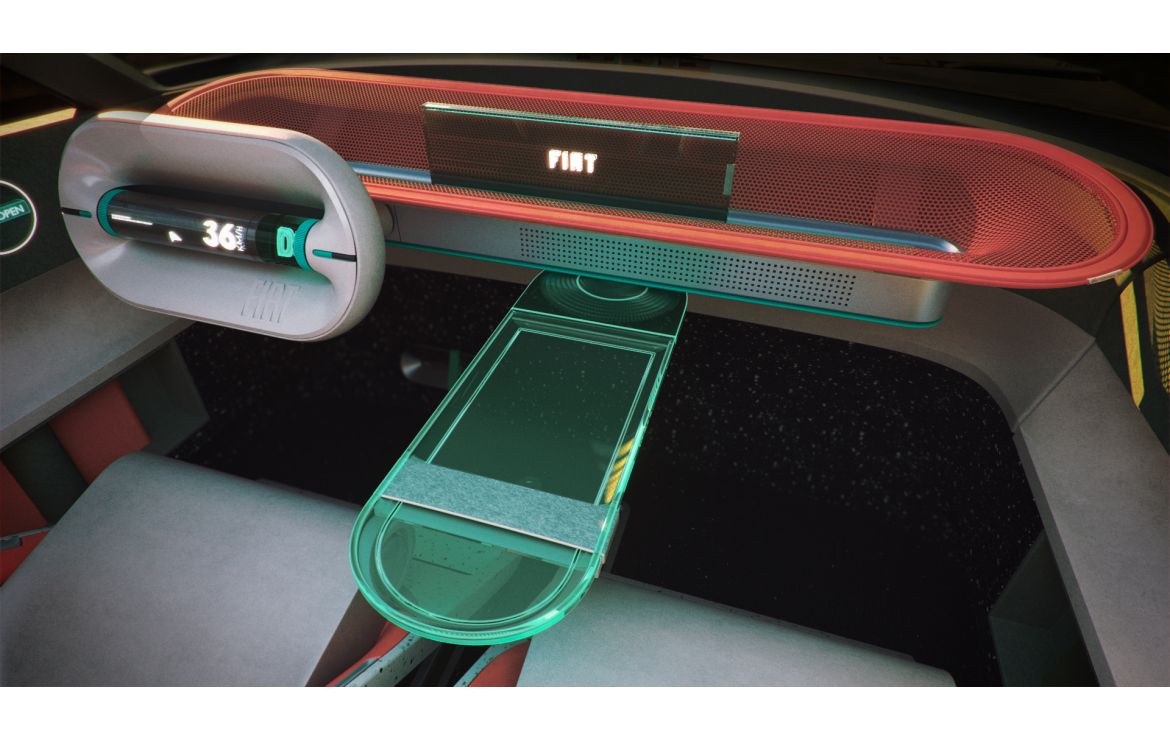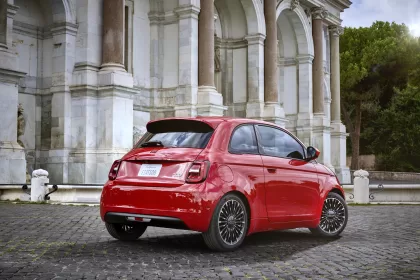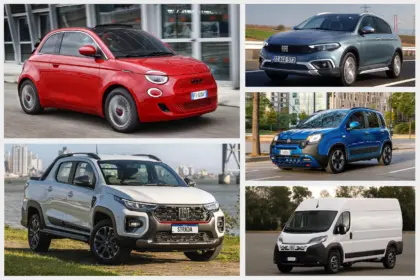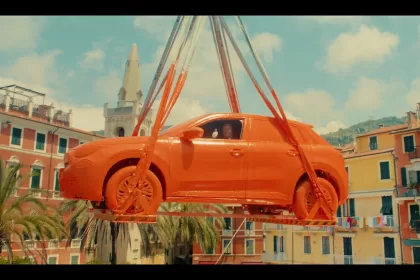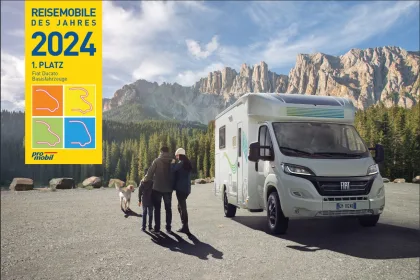- In the 100th anniversary celebration video “Shaping the Future”, Olivier Francois, FIAT CEO, anticipates a vision for future FIAT models.
- FIAT’s future cars will be inspired by signature aspects of the Lingotto and of the world-famous rooftop track: including its characteristic lightness, optimization of space, and the intensity of its façade.
- The video features a conversation between Olivier Francois and Ginevra Elkann, President of the Pinacoteca Agnelli, about the Lingotto centenary: starting from its birth and projecting the Lingotto into the brand’s future.
Today, FIAT celebrates the 100th anniversary of the iconic Lingotto: a century has gone by since the fundamental production facility was officially opened on May 22nd, 1923, immediately establishing the location as a major Italian industrial centre. The famous building now has a new life and purpose but continues to be an engine of new ideas and inspiration.
For FIAT, Lingotto is a place where heritage meets the future. In its early days, its iconic structure and features were a manifesto that truly launched FIAT into the 20th century. Today it is again a manifesto of the brand’s renewed vision in the 21st.
In the celebration video “Shaping the Future” Olivier Francois, FIAT CEO and Stellantis Global CMO, takes the opportunity to anticipate some details of the cars that will begin to appear on the market from 2024. The “Lingotto inspired” theme also makes FIAT’s goal explicit: to inspire change and make a sustainable future accessible to all. Olivier Francois said: “At FIAT we think that the Lingotto and the track are such a landmark that they deserve to become ‘design markers’. Their characteristics have inspired FIAT designers to trace the lines of the future FIAT models, from the incredible roof track, to the ramp – a revolution in the 1920s – which is like a manifesto of our traditional lightness: less material, more space, that’s our vision of interior design moving forward. The oval shape of “La Pista 500” inspires several new interior product marker, while the façade, with the lightness of its windows, will also become a distinctive signature of the future models. I look forward to launching those ‘Lingotto inspired’ models a year from now.”
Ginevra Elkann, President of Pinacoteca Agnelli said: “Today is a special day: the Lingotto was officially opened by my great grandfather, exactly 100 years ago. It was a very proud moment: a huge step forward for FIAT, and for the Italian industry in general. Corbusier called it “one of the most impressive sights industry has ever offered”. The Lingotto has been an icon of Italian production, of renewal and transformation and, still today, it’s an engine for new ideas. In the 80s we were in search of a new purpose, so my grandfather decided to turn it into what you see today: shops, offices, hotels, and culture fulfilled by the artistic mission of Pinacoteca Agnelli. Recently relaunched through a new ambitious programme of exhibitions and events, the Pinacoteca has become a new destination for a diverse and young public. Thanks to the hanging garden on La Pista 500 with its spectacular art installations, to Casa 500 and its FIATCafé500, Pinacoteca Agnelli is today one of the most visited museums in the city.
The Lingotto building found its new vocation during the 80s when it was inaugurated to the city of Turin and the collection of Giovanni and Marella Agnelli became its symbolic core. Today the opening of La Pista 500 reconnects the public with the original identity of this special site, merging the past with new, fresh, and vital roots.
La Pista 500 is the largest hanging garden in Europe and Casa 500 – welcoming visitors interested in the FIAT icon, art, architecture, and nature – is not just a museum: it’s the beginning of a journey into the future.
As the original, symbolic home of FIAT for a century, the Lingotto is constantly evolving and adapting itself over time, like the FIAT Brand. Innovation, attention to detail and lightness remain at the core of the brand’s future plans, with a strong prioritization of customers’ real needs in an era of continuous change.







